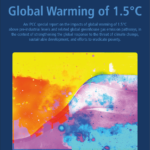
Inside ARC: A look at licensing and environmental Initiatives
- Posted8 May 2024
- VASA MembersVASA Members
With Australian Refrigeration Council CEO Glenn Evans As a member of VASA, you no doubt know about the ARCtick licensing scheme for Australia’s climate control industry – you most likely hold an ARCtick refrigerant handling licence (RHL) or refrigerant trading authorisation (RTA). The automotive sector has more than 32,000 RHLs and well over 10,000 RTAs … Continue reading Inside ARC: A look at licensing and environmental Initiatives





